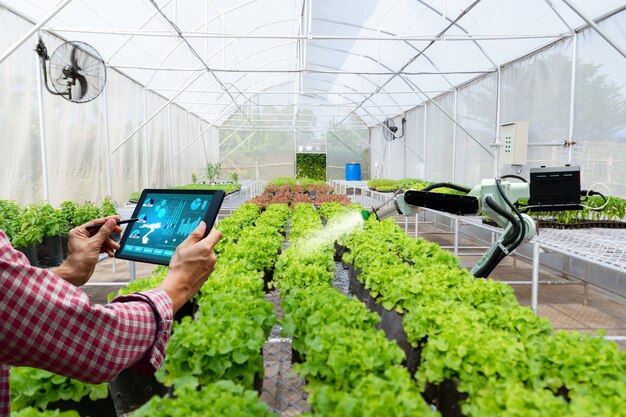Canada, known for its vast agricultural lands and harsh weather conditions, has embraced big data to revolutionize farming efficiency. By integrating data-driven decision-making with advanced technology, Canadian farmers are increasing yields, optimizing resource use, and reducing environmental impact. South Africa, with its own unique agricultural challenges, can learn valuable lessons from Canada’s approach to data-driven farming.
How Canada Uses Big Data in Agriculture
Canadian farmers leverage big data through smart sensors, AI-powered analytics, and cloud-based platforms that transform raw information into actionable insights. These technologies help optimize every stage of farming, from planting to harvesting.
- Precision Agriculture
Farmers in Canada use GPS-guided equipment and IoT sensors to collect real-time data on soil conditions, weather patterns, and crop health. AI algorithms analyze this data to provide precise recommendations on when and where to plant, irrigate, and fertilize. This reduces waste and maximizes productivity. - Predictive Weather Analytics
Canada’s unpredictable climate makes weather forecasting crucial. Farmers rely on big data models that analyze historical weather patterns and current atmospheric conditions to predict rainfall, frost, and droughts. This helps them prepare for extreme weather events and adjust farming schedules accordingly. - Smart Irrigation and Water Management
In water-scarce regions, Canadian farmers use data-driven irrigation systems that monitor soil moisture levels and automate watering based on crop needs. This approach reduces water wastage and ensures that plants receive the right amount of hydration at the right time. - AI-Driven Pest and Disease Control
Big data helps Canadian farmers predict and prevent pest infestations and crop diseases. AI-powered drones and satellite imagery detect early signs of plant stress, allowing for targeted pesticide application. This minimizes chemical use and reduces environmental harm. - Supply Chain Optimization
Data analytics play a key role in improving logistics and market access. By analyzing demand trends and transportation routes, farmers can reduce post-harvest losses and ensure their produce reaches consumers efficiently.
Lessons for South Africa
South African farmers face challenges such as drought, soil degradation, and market inefficiencies. By adopting big data strategies similar to Canada’s, they can improve sustainability and profitability.
- Investing in Data Infrastructure
Canada benefits from widespread access to agricultural data platforms. South Africa can follow suit by expanding digital infrastructure and providing farmers with affordable access to data-driven tools. - Enhancing Climate Resilience
With climate change affecting rainfall patterns, South Africa can use predictive analytics to anticipate droughts and optimize water usage. AI-powered climate models can help farmers make informed decisions about planting and irrigation. - Encouraging Precision Farming
Smallholder farmers in South Africa can benefit from affordable IoT sensors and mobile-based analytics to improve productivity. Government and private-sector initiatives should focus on making these technologies accessible. - Strengthening Market Insights
Data-driven supply chain management can help South African farmers reduce food waste and improve market access. AI-powered platforms can connect farmers with buyers, ensuring fair prices and better distribution.
Canada’s use of big data in agriculture proves that technology can drive efficiency, reduce waste, and improve sustainability. By learning from Canada’s success, South Africa can enhance its agricultural sector, ensuring food security and economic growth in the face of climate and resource challenges.
Join 'Farmers Mag' WhatsApp Channel
Get the latest Farming news and tips delivered straight to your WhatsApp
CLICK HERE TO JOIN






